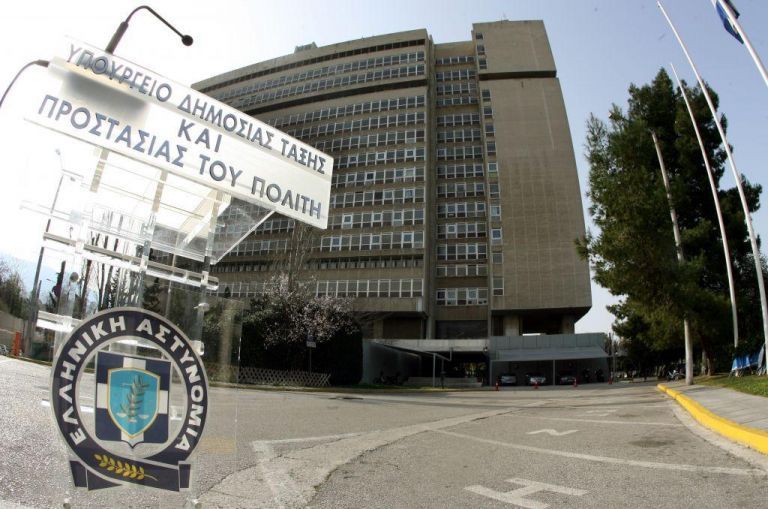By Vasilis Labropoulos
In the last 15 years, there have been at least 20 cases of suspicious actions or mistakes within the National Intelligence Service (EYP) that have had an impact on Greek politics and raise questions about EYP’s modus operandi and objectives.
The recent case of the surveillance of the phone of PASOK-KINAL leader Nikos Androulakis is just the most recent “Act” in a series of problematical actions within EYP.
EYP’s past blunders, sketchy history
It is not only the 1999 case of PKK (Kurdistan Workers’ Party) leader Abdullah Ocalan. who was kidnapped by the MIT Turkish intelligence service in Kenya [he had entered Greece illegally on a private jet and EYP flew him to Nairobi supposedly to offer him asylum in the Greek Embassy there in order to avoid a military clash with Turkey, where he was enemy number one], or the revelation in 1991 of the role of US Embassy employee Steven Lalas [who was spying for Greece and jailed in the US].
Over the last years, there have been revelations of other suspicious and unjustified cases of surveillance, machinations to embezzle funding, forged documents, and leaks of EYP documents that raise many questions.
The problem of underfunding of the secret services, the inertia or incompetence of certain civilian, military, and police employees that are incorporated in EYP with a pay bonus, the inadequate supervision of surveillance systems and of operational decisions, and major corruption cases, the exposure of “secret” investigations, and cases of incredible carelessness have over time led to a series of mistakes and censurable moves that have attracted public attention.
At various points over the years, there have been unprecedented clashes between officers that have drawn public attentions, of agents approached by private interests, and of many cases of pursuing the ulterior motives of political divs and administrative employees of the secret services.
Such phenomena have disoriented EYP from is proper functioning despite repeated efforts to restructure and reorganise it.
Internecine warfare
Beginning in 2005-2006, an unprecedented internal war broke out in EYP when information was leaked regarding the infamous case of the “kidnapping of Pakistanis” the previous summer, following a request from Scotland Yard, which linked foreigners living in Greece, including Ioannina, with the deadly al-Qaeda Underground train blasts in London in July, 2005.
That was followed by mutual recriminations between employees over pictures taken at parties of EYP employees at nightclubs that allegedly exposed secret agents.
A new clash within EYP arose in 2006-2007, with revelations from various sides within the service about suspicious actions of EYP contingents equipped with a suitcase for the surveillance of cell phones, but also with micro-cameras that had been funded by OLAF (the European Commission’s Anti-Fraud Office).
Satellite border monitoring system
During the same period, a “scandal” arose due to the installation and operation by EYP of a special system, with a 1.6mn euro price tag, for the analysis of satellite data for the monitoring of Greece’s borders.
At the same time, questions were raised within EYP regarding the affair of a tender for the procurement of the first centralised system for “legal wiretappings”, at a cost of 3.5mn euros, which led to the procurer being jailed.
Alleged ‘Pythia’ operation to assassinate PM Karamanlis
In 2009, criminal charges were filed against an employee of the Directorate for Espionage because he had absconded with 5,000 classified documents “with the intention of handing them over to foreign officials”, as the official case file stated at the time.
At the same time, a case dubbed “Pythia”, that received broad public attention, emerged.
It allegedly involved, based on the claims of a dubious informant from Russia, a plot, which was never confirmed, to assassinate then prime minister Kostas Karamanlis.
‘Spy College’
In 2010-2011, certain EYP employees in cooperation with businessmen apparently established a “college” on Akadimias Street in central Athens that would supposedly grant degrees to aspiring agents, while at the same time there was a controversial plan to buy an IT company to supposedly “spy on Balkan countries”.
In the same period, a court case was filed concerning leaked emails from EYP agents to British academics, even as psychometric tests of applicants for employment were made public. That was followed by documents written by employees with mutual recriminations, charges of “treason”, and references to “spies within the service and the uncovering of Greek informants abroad”.
In another document, an EYP employee referred to pending litigation he had with a female agent, whom he accused of “using ridiculous, well-known false witnesses, andindividuals with a sketchy political past in the service who did not appear for work, were cardplayers, and other dubious types”.
Another employee wrote, “What shall I recall first? The pressures, the threats, the blackmail, or the operational councils of EYP in which I participated?”
Tumultuous situations
The peculiar, tumultuous conditions in EYP were unending.
In an investigation a few years ago, it emerged that there was a group in EYP that in a home of the Athens suburb of Halandri forged receipts that allegedly involved payments of thousands of euros to journalists for information that they had allegedly given EYP.
Moreover, it was discovered that certain EYP employees in critical positions had ties with top bank executives. In that framework, it was discovered that there were peculiar missions of agents to Ionian Islands in order to surveille a woman, suspected of bank fraud, who was clearly irrelevant to the interests and priorities of the Greek secret services.
There have also been allegations of links between EYP agents and a collection agency employed by a large bank, as well as of the hiring and legal wiretapping by EYP of relatives of employees of a bank.
There were also allegations of phone wiretappings on behalf of businessmen, and regarding the activity of rings in EYP linked to human smugglers of migrants (the accused were acquitted in court).
WikiLeaks reveals EYP interest in procuring spyware in 2014
In a WikiLeaks documents, it appears that as of 2014 the Greek secret services were interested in procuring telephone spyware similar to Pegasus and Predator, the use of which has come up in the recent surveillance affairs.
Record number of surveillances
The number of individuals surveilled by EYP skyrocketed between 2016 and 2018.
In 2016 10,376 requests to lift the privacy of communications were filed, while in 2018 that number reached a record-breaking 14,513 requests.
In that period, there was recorded a cycle of EYP surveillance of political divs, state bureaucrats, and private individuals, which is reportedly described in informational bulletins.
This surveillance – physical and with technical means – was apparently carried out, according to the scenario offered by secret services officers, in order to identify “political links” of the corruption ring within Greek Police, involving former and current policemen.



